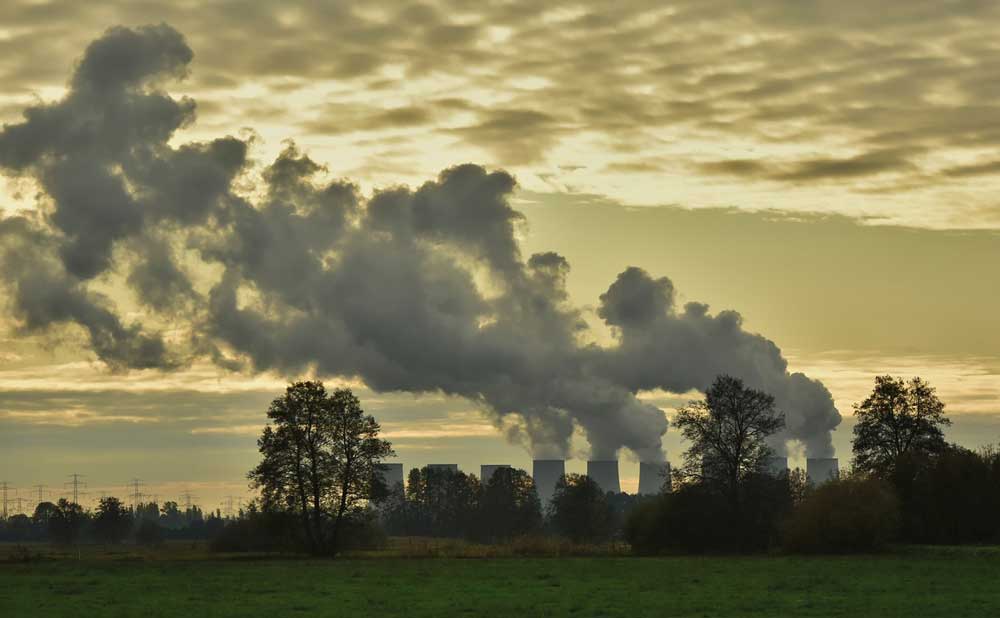Capitalism has often been praised for fostering innovation and economic growth, but it also creates challenges when profit motives conflict with social good. Critics argue that clean energy, universal healthcare, and peace are sidelined because they threaten powerful industries’ financial interests—oil, insurance, and weapons manufacturing, respectively. Supporters of capitalism counter that the system encourages competition and can adapt to prioritize solutions like renewable energy or affordable healthcare. Whether capitalism inherently prevents progress or has the flexibility to evolve depends on how it is regulated and whether public welfare takes precedence over profits. Do you think the system needs reform, or can it adapt organically? “We can’t have clean energy because it will destroy the oil industry. We can’t have healthcare because it will destroy the health insurance industry. We can’t have peace because it will destroy the weapon industry. Capitalism built a system where we can’t afford to do the right thing.” Do you agree with this? Why or why not? Let’s talk about it…
Eva Pesce: “ Capitalism is simply a system in which there is an open market, where the population of a nation or country is able to purchase goods and services of their own volition. Likewise, people can offer their own goods in exchange for monetary value. This isn’t inherently a good or bad thing, the problem is when large corporations or people with a lot of wealth continue amassing it. A large issue with large companies and brands is that one of the few things to keep their unimaginable wealth in check are taxes, yet a lot of companies illegally liquidate funds within multiple umbrella companies to lessen their amount they need to pay. This is how companies like Apple, Google, or Facebook have more wealth than the majority of countries on this planet. Likewise, it’s difficult to begin making money without having some in the first place, so it’s small systematic errors like these which cause things like the shrinking middle class in America.”
Patrick Ehlert: “No, the biggest threat are greedy and selfish people who don’t care about the environment, and people who are totally ignorant of the consequences of their actions on the environment. If any system is to blame I’d say it is consumerism (which is not the same as capitalism). Capitalism is an economic system where goods are owned by private individuals or by corporations. An alternative is Socialism, where the goods are owned by the state or by all people of a country. Both systems can have a positive or negative influence on the environment. Under capitalism, you have companies that try to maximize their profits by increasing sales and reducing costs. They dump waste in development countries to avoid costs and they make commercials that lure people into buying stuff they don’t really need. It’s the production, use and disposal of all this stuff that has an negative effect on the environment. Under socialism, bad things can happen as well. The socialist system doesn’t say anything about how to properly manage and take care of ecosystems. A good example is the Aral Sea that has almost completely dried up because in the 1960s the Soviet Union diverted water from the two rivers that fed the Aral sea in order to irrigate the desert. An often quoted (albeit very much simplified) formula that shows how people affect the environment is the IPAT equation:Impact = Population * Affluence * Technology or a bit more verbose/Impact on the environment = Number of people * Average consumption per person * impact per unit of consumption Basically, this equation says that in order to reduce the impact on the environment, we either have to reduce the number of people, reduce the average consumption per person, or reduce the impact per unit of consumption (i.e. improve technology).”
Bernard Ching: “In our world when we speak of capitalism, socialism or communism we are speaking in pure terms and it really doesn’t exist. The United States, in order to form a more perfect union and likewise economy used our brand of capitalism – The American Capitalism which has been refined through the years. The various refinements included federal controls like anti-trust acts. It creates changes through laws to set up a framework conducive for fair competition. At the same time it enhances the health and welfare of the workers. The gilded age presented many industrial giants who got wealthy at the expense of workers. Many Republicans complained we promote socialism when we have medicare, social security and various safety net programs for a segment of our citizens yet our government never nationalized any part of the industry or economy. Our brand of capitalism regulates the various sectors so an orderly economic structure can exist. Just look at our power grids, our water supplies, our banking industry, our transportation system. The government didn’t build the power grids, it cooperated in irrigation by building dams to manage power and floods and built roads so every citizen along with trucking companies. Profit motive is important but an Adam Smith’s type of laissez faire economy will not work in the United States. American Capitalism is not static, it evolves to fit the times and needs of its citizens.”
Marshall Solomon: “Yes. But it depends on the metric one uses to assess capitalism.Has capitalism produced a lot of wealth? Yes.Has capitalism produced wealth through violence and exploitation? Yes.Has capitalism produced enough food to feed the global population? Yes.Has capitalism led to millions of people starving to death every year? Yes.Has capitalism led to innovation and (relative) efficiency? Yes. Has capitalism led to environmental destruction through innovation and efficiency (Jevons Paradox)? Yes.In short, capitalism is full of contradictions. Wealth produces unconscionable poverty. Perfectly good food rots while people starve. Efficiency creates destruction. As some Christians attribute all that is good to God and all that is evil to man, some supporters of capitalism tend to attribute wealth creation to the economic system and poverty to individuals. It is not the system that is failing. It is individuals unwilling to work hard and compete. Unemployment, for instance, is understood as a personal failure of individuals to go out “get a job.” It is never capitalism’s failure to “create jobs.” People, apparently, get lazier during an economic crisis, according to this twisted logic. The system is always sacrosanct. Other supporters of capitalism pretend a unified economic system called “capitalism” does not really exist at all. There are only individuals competing in the market. Everyone is a capitalist to these people. Capitalism can’t be failing because there is no such thing as capitalism, as such. All the failings of the supposed economic system are the result of individual “bad actors.”Both groups resemble cult members more than thinking people. Taken as a whole, capitalism is unequivocally failing the vast majority of people on the planet and the planet itself. The evidence is overwhelming. The correlation between capitalism and social pathology is strong.The United States has been the capitalist hegemony for, at least, the past 60 years. It has created more wealth, the most common measure of capitalism’s greatness, than any other country.”
Robert Rossney: “Industrialization and development are destroying the environment. Under capitalism, environmental damage is treated as an externality. The rewards of any industrial development are reaped by capital, while the environmental costs are borne by society as a whole. This whole pattern of socializing risk and privatizing reward is found everywhere in capitalism, but it’s especially glaring when you look at environmental damage.Of course, non-capitalist systems that industrialize accomplish the same thing in different ways. Under communism, centralized planning set targets for production, but carbon emissions weren’t part of the plan. So China is full of badly-polluted industrial zones. Once again, environmental damage is an externality. Both systems are extremely resistant to changing this.Under capitalism, making industries assume the cost of the damage they do to the environment may seem rational, but it can only be accomplished through regulation, and capitalist ideology tells us that regulation is destructive and terrible. The regulations that we write and impose with our government get immediately challenged in court, or the people whose job it is to enforce the regulations get replaced by people from within the regulated industry.Communist systems tend to set their goals without regard to their human cost. (Capitalism sets its goals without regard to the human cost too, mind you.) Remember, for instance, that about half a million Chinese died during the war because the government decided that breaking the dams on the Yellow River would make it harder for the Japanese to defeat it. Their approach to the problem has been making it illegal to talk about or document evidence of environmental damage. This really only worked as long as it was still possible to see through the air in Beijing. Now that it’s no longer possible to finesse this, they’re now searching to find someone to blame, since the blame cannot fall on the Party.”







